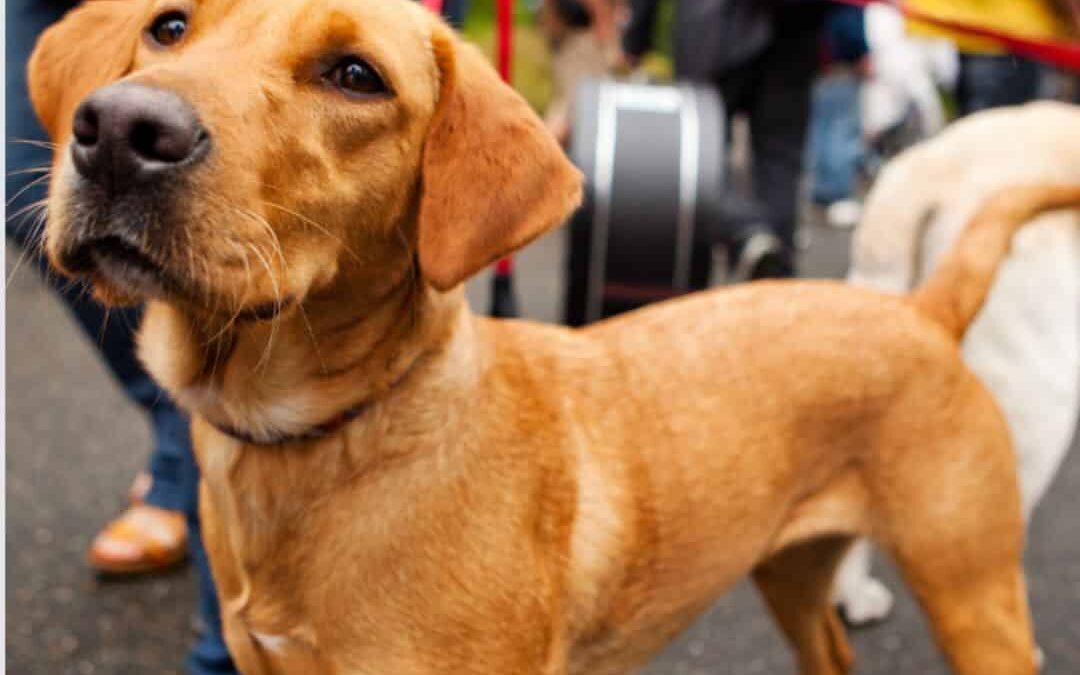One of the joys of having a dog is that they can be your companion out in the world, no matter what you’re up to. This means they need to learn how to be out in the world around other humans and other animals. Out of all the ways to socialize your dog, you could hire us at Sundance Retrievers to help give your dog a solid foundation in social skills and dog manners.
But even if you hire someone (like us!), you’ll still want to continue the training at home and throughout their lives (dogs need constant mental stimulation. You can read more about training your older dog here).
Dogs are social creatures, of course, and they have to learn to behave in a wide variety of situations.
Whether you’re taking them on a popular trail for a walk or you’re taking them to an event crowded with humans, they need to have learned skills to not become overwhelmed and act out. (More humans need these skills! HA!)
Over their lives, being social is so good for them. Taking them new places where there are new sights and sounds and smells to explore is great for their brains!
Here are some basic ways to socialize your dog:
Schedule dog playdates
Start simply: invite a friend to your home who has a dog. At first, keep both dogs on leashes. And have treats at the ready so you can reward good behavior. Over time, you can go on walks together, and before you know it, you’ll have dog BFFs.
Prioritize walks
For obvious reasons, you should already be walking your dog daily. But these walks also provide you with the opportunity to stop and meet other dogs and other humans.
Find a doggie park
At first, simply walk your dog around the outside of the dog park until they seem relaxed. Then you can move more into the park, but again, stay on leash until you know your dog is relaxed enough to really mingle.
Dog friendly stores and restaurants
When it comes to going public outside the usual dog spaces, start with the quieter and smaller stores and restaurants that allow dogs. Plenty of dog food stores, for example, love having dogs walking around. Once your dog gets acclimated to going to these smaller places, then you can start to seek out new environments, for example outdoor art and music events.
Visit other people’s homes
You want to make sure your dog can handle all the different smells and unexpected sounds of strange environments. Someone else’s house has all of that to offer and more, including different flooring surfaces, different layouts, and if you don’t have children, perhaps little ones running around.
Overall…
Watch out for making your dog’s life too small. Making sure that they are comfortable in any new environment is, as we have said, good for their brains, but it can also ensure their safety in emergency situations that can involve being taken somewhere strange and being surrounded by a lot of chaos.
(You could read this by the Red Cross about pet preparedness for emergencies and natural disasters.)

